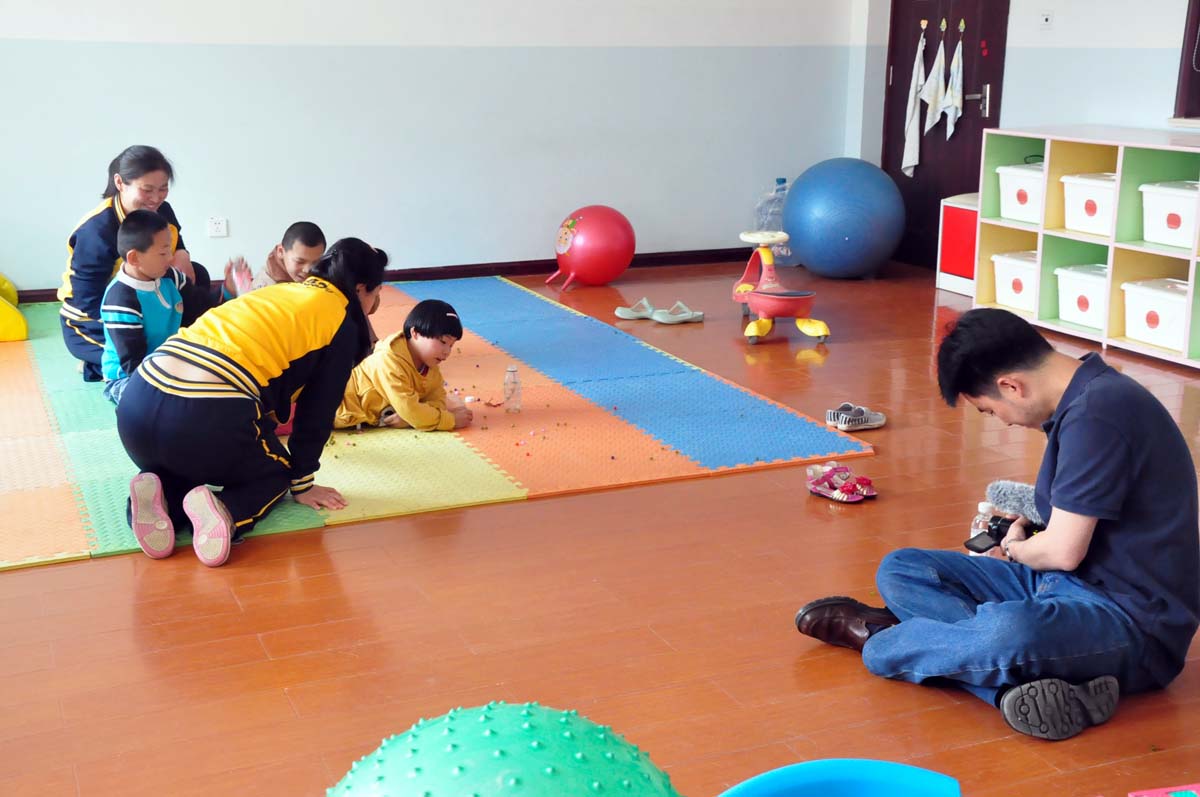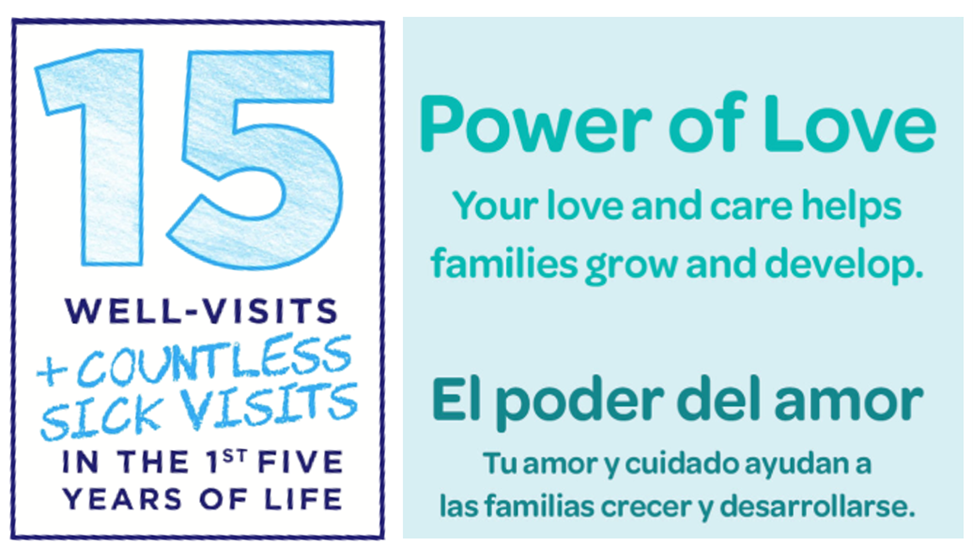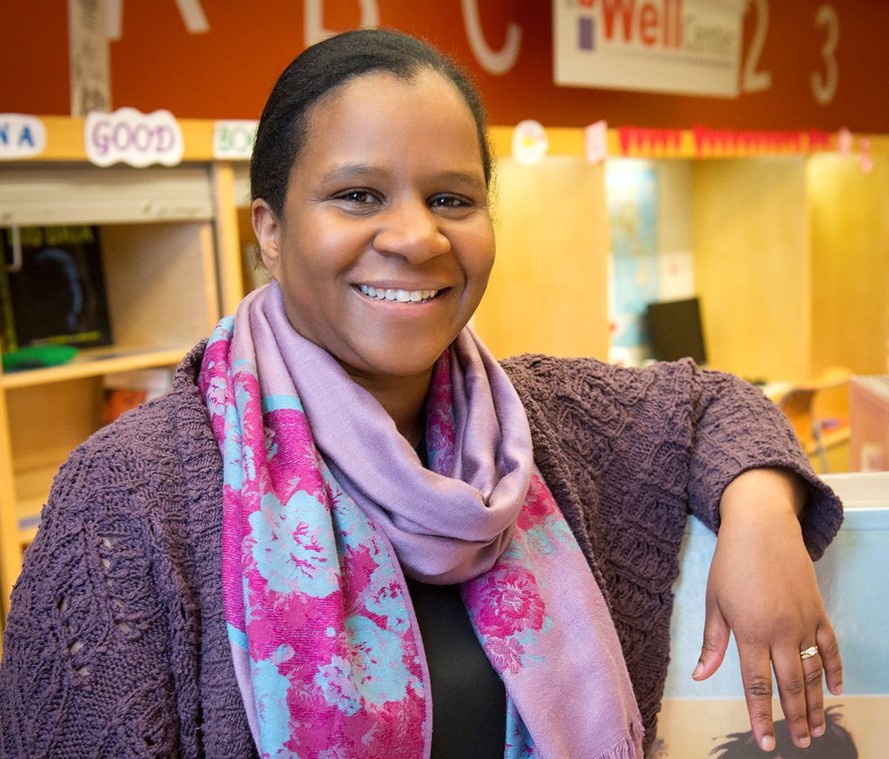👋 Welcome to Starting Early. Every other week, we spotlight new reports, useful news, engaging interviews with people doing important work in the field, and interesting takes on issues that matter.
In our last issue, we connected ACEs (Adverse Childhood Experiences) and toxic stress as root causes of some of the most harmful and expensive societal and health challenges.
This week, we highlight early relational health, an antidote to the damaging effects of trauma: buffering adversity through positive, nurturing relationships can advance a young child’s health, well-being, and resilience.
We spoke with a thoughtful early childhood expert and Turrell Fund trustee Dr. Junlei Li of the Harvard Graduate School of Education. Dr. Li’s work is inspired by the legacy of Fred Rogers. A father to two adopted children and creator of the Simple Interactions tool to support those who serve children, Dr. Li and his collaborators are deepening the powerful interactions between children and adults in a range of settings — from early childhood and K-12 classrooms to afterschool programs and pediatric hospitals.
Please read on and click through the links to go deeper.
1 Big Thing: Positive Childhood Experiences Profoundly Affect Lifetime Health and Development

What’s happening in a baby’s brain: In early childhood, at least 1 million new neural connections are made every second — more than at any other time in life.
Early relationships matter: Babies develop in an environment of relationships. By engaging in stimulating, nurturing care with children at this crucial stage, parents and caregivers lay the building blocks for a child’s lifelong learning, health, and behavior.
Putting early relational health into practice: Among many easy-to-use techniques for parents and caregivers to strengthen early relationships during everyday interactions are:
- Skin-to-skin contact (also known as “kangaroo care”) — Placing a newborn or infant directly on a caregiver’s bare chest promotes bonding and has many benefits for caregivers (such as lower stress levels) and babies (including stabilizing heart rate).
- Serve-and-return — Smile, coo, and talk to you baby, then wait for the response. Much like a lively game of tennis or ping-pong, the back-and-forth strengthens neural connections in a child’s brain and supports communication and social skills.
- Moving together — An essential means of communication, movement is one of the earliest ways that children express their thoughts and feelings. Sharing in a child’s joy of movement helps build a close bond.
Babies learn to feel comfortable, safe, and secure in the world when their caregivers respond to signals and create a trusting bond by addressing needs.
Watch this wonderful relational moment between a dad and his son that went viral (shared by Dr. David Willis, CSSP).
“To the newborn, love is action; it is the attentive, responsive, nurturing care that adults provide. To the infant, skin-to-skin warmth, the smell of the parent, the sights and sounds of her caregivers, the attentive and responsive caregivers’ actions — that becomes love.” ❤️
— Oprah Winfrey and Bruce D. Perry in What Happened to You?
2. Dispatches from the Field: The Power of What We Already Do Well

Meet Dr. Junlei Li. His research and practice focus on understanding and supporting the work of helpers – those who serve children and families on the frontlines of education and social services.
Dr. Li developed the Simple Interactions tool to identify what ordinary people do extraordinarily well with children in everyday moments and made it the basis for promoting positive systems change. In capturing authentic and unscripted adult-child interactions, the tool inspires opportunities to reflect on what we already do well.
He shared with us:
“The word simple was likely inspired by something that Mr. Rogers used to say: ‘deep and simple is far more essential than shallow and complex.’ The premise is that we can talk about policy, we can talk about programs, but ultimately the rubber meets the road when a caregiver or a helper—whether it’s a teacher or a family member—comes face-to-face with a child. Something happens in that little space of connection.”
We discussed:
- How simple, face-to-face interactions with a child promote development
- Empowering simple, strength-focused interactions through connection, reciprocity, inclusion, and opportunity to grow
- A message to parents and caregivers on supporting their children through the pandemic
“If you think about a young baby learning to walk, what motivates that young baby? It’s someone with outstretched arms to catch them, someone they love, someone that loves them. So walking is an opportunity to learn, but what motivates us to learn when we’re struggling is someone’s outstretched arm that promises acceptance and safety.”
3. Training the Next Generation of Healthcare Helpers

The US healthcare system touches nearly all babies and is an entry point to improved health and early childhood outcomes for children.
In their first five years of life, children attend as many as 15 well-child visits. For new parents across socio-economic status and racial and ethnic groups, pediatric clinics are among the most trusted resources, second only to immediate family.
The challenge: While doctors are trusted family advisors, 76% of graduating pediatric residents feel unprepared to advise parents on ways to promote early childhood development.
The innovation we need: The Mount Sinai Parenting Center is pioneering a new pediatric residency training program that stresses positive parenting and child development and adding simple, positive relational and brain-building messaging to clinical sites.
- Out of the 210 pediatric residency programs across the country, 150 are incorporating Mount Sinai’s parenting curriculum – Keystones of Development– into their residency trainings. In New Jersey, so far 155 residents across all nine residency programs have completed the curriculum during this academic year through a partnership with the New Jersey Chapter, American Academy of Pediatrics (NJAAP).
A win for children and families with promising results:
- Greater confidence: Newly-trained residents are promoting specific strategies with parents in early learning, socio-emotional skills, and brain development.
- Significant changes in staff behavior: 96% of staff said they talked out loud about the things their young patient was seeing, hearing, and doing during an interaction, compared to a baseline of 68% prelaunch.
- Positive clinical transformation: 90% of staff indicated that the training, signage, and messaging are empowering them to become more patient- and family-centered and making the hospital a more welcoming place for parents and families
“Pediatricians learn about vaccines, growth charts, and treating broken bones and asthma in medical school. But to treat the whole child, we also must model positive parenting techniques and support caregivers in building nurturing relationships with their kids to help them feel safe and loved while providing opportunities for their independence and skill-building. The Keystones curriculum helps residents deliver that kind of care so families can help children thrive and succeed.” – Usha Ramachandran, MD, FAAP, Associate Professor of Pediatrics, Rutgers Robert Wood Johnson Medical School
One Smile to Go: Welcoming Dr. Renée Boynton-Jarrett to the Burke Board of Trustees 👏🎉

We’re thrilled to introduce Dr. Renée Boynton-Jarrett as the newest member of the Burke Foundation’s Board of Trustees.
Dr. Boynton-Jarrett brings tremendous talent and expertise to the Burke Foundation. She is a champion of children and families, an architect of community well-being as a practicing primary care pediatrician at Boston Medical Center, and a social epidemiologist and founding director of Vital Village — an organization developing community-based strategies to promote child well-being around Boston.
Dr. Boynton-Jarrett founded Vital Villages to address the need for caregivers and community residents to work more collaboratively with community-based institutions. She observed that groups were often stuck in silos while working to improve child health and educational outcomes and well-being. She asked, “Who would be in a better position to help address challenging circumstances than the members of the community that live there each day and experience it each day?”
Dr. Boynton-Jarrett adds, “You may look at certain communities and see them with more of a deficit lens. They have high needs and high issues, but we take the opposite orientation. We look for the assets and resources within a community — and one of the biggest assets and greatest resources in every community in America is the people. The people and the abundance of their willingness to give and help their neighbors. And we have leveraged that very abundance of that willingness to help your other peers to really have a huge impact on health and well-being in a very proactive, sustainable, and scalable model.”
Listen to more from Dr. Boynton-Jarrett here.
